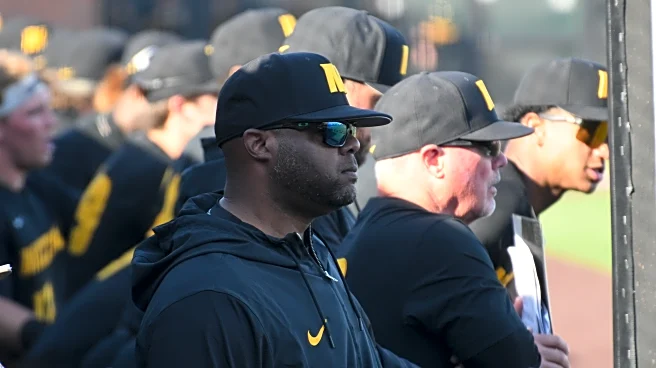What is the story about?
What's Happening?
The U.S. government is on the brink of a shutdown as political parties remain divided on funding solutions. Senate Majority Leader John Thune and Senate Minority Leader Chuck Schumer have exchanged blame, with both sides failing to reach a consensus. The Senate is set to vote on partisan options to fund the government temporarily, but both are expected to fail. The impasse highlights the challenges in negotiating budgetary agreements and the potential impact on federal operations.
Why It's Important?
The looming government shutdown is significant for federal employees, public services, and the broader economy. A shutdown would disrupt government operations, affecting services and potentially leading to furloughs for federal workers. The political stalemate underscores the difficulties in bipartisan cooperation, impacting public trust in government effectiveness. The shutdown could also influence economic stability, with potential repercussions for markets and public confidence in fiscal management.
What's Next?
If the government shuts down, a prolonged period of negotiation may ensue, with both parties seeking to shift blame and gain public support. The resolution of the shutdown will depend on political willingness to compromise and address key issues, such as healthcare program cuts and Affordable Care Act subsidies. The outcome may influence future budgetary discussions and legislative priorities, shaping the political landscape and public policy direction.
















